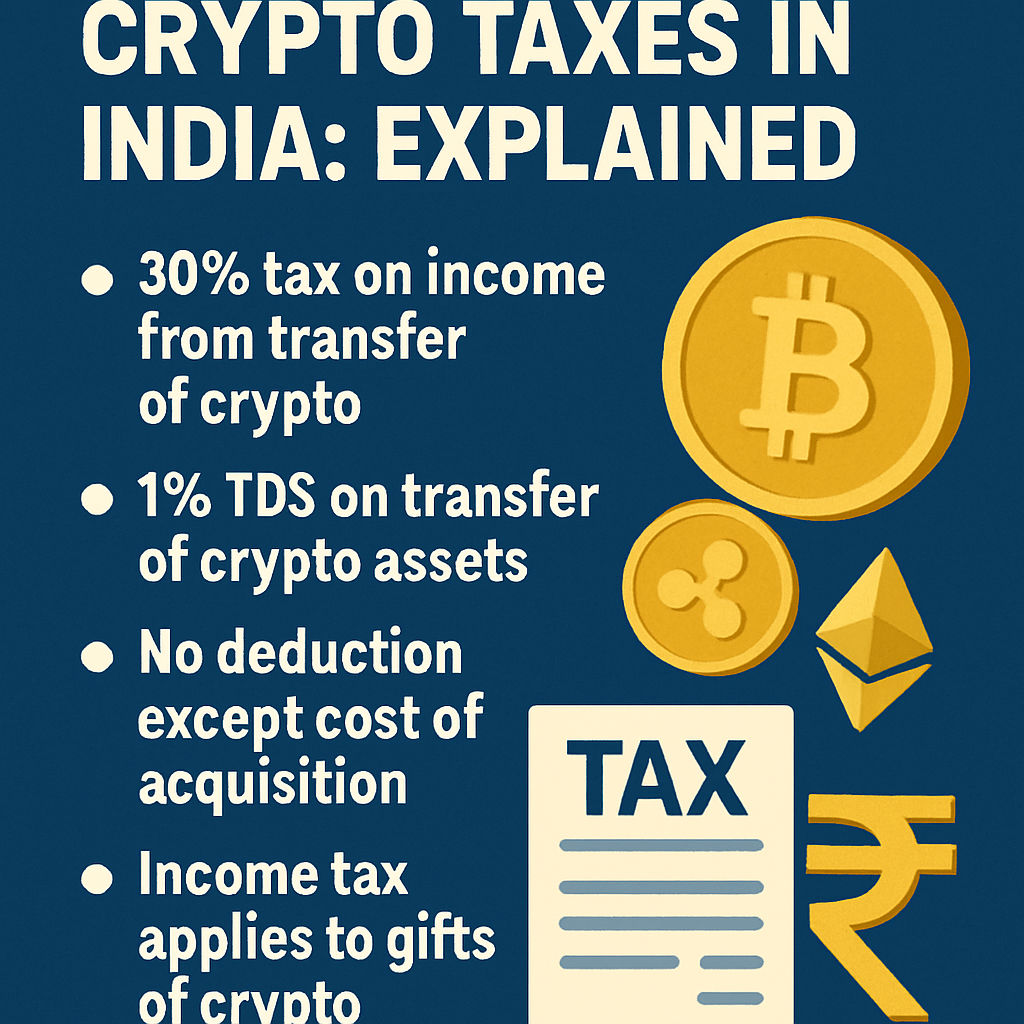Regulatory Framework
For financial year 2024–2025, the Income Tax Act, 1961 categorizes digital tokens and non-fungible tokens as virtual digital assets (VDAs). VDAs include cryptocurrencies such as Bitcoin and Ether, as well as any code, number or token generated through cryptographic means. Exemption applies only to fiat currencies. Classification under VDAs subjects all crypto transactions to tax provisions without recognition as legal tender.
Taxable Events and Rates
India imposes a flat 30% tax on income from VDA transfers. All VDA transfers incur a 1% tax deducted at source (TDS), applicable to both cash and crypto-for-crypto exchanges. Short-term and long-term capital gains on VDAs face identical taxation without differentiation by holding period. No deductions beyond cost basis are permitted, and losses from VDAs cannot offset gains on other assets.
TDS Provisions and Thresholds
Section 194S mandates a 1% TDS on VDA transactions exceeding ₹50,000 per financial year. For certain entities, threshold lowers to ₹10,000. Buyers must deduct TDS from payments, including mixed-mode transfers requiring cash payment for shortfalls. Specified persons may forgo Tax Deduction Account Number requirements for transactions under threshold limits.
Reporting Requirements
Crypto transactions must be reported separately under Schedule VDA in income tax returns. Accurate records of transaction timestamps, wallet addresses, exchange statements and rupee valuations are essential. Reporting obligations cover all crypto activities, including staking rewards, airdrops, mining income and NFT sales. Failure to comply risks penalties, interest charges and potential prosecution.
Calculation Methods
Tax basis calculation follows cost of acquisition plus transaction fees. Methods such as FIFO or LIFO require consistent application. Crypto-to-crypto trades treat each swap as separate disposal and acquisition events, requiring valuation in rupees at transaction time. Transaction-relatedexpenses like exchange and wallet fees qualify for inclusion in acquisition cost.
Compliance Deadlines and Penalties
Individual filers must submit returns by July 31, 2025. Businesses requiring audit face an October 31, 2025 deadline. Non-compliance incurs late-filing penalties, interest on unpaid taxes and fines for willful evasion. No relief exists for VDA losses due to theft or hacks.
Challenges and Outlook
Ambiguity persists around DeFi and NFT taxation due to evolving legal interpretations. Cross-border recognition remains complex under FEMA regulations. Ongoing dialogue between tax authorities and industry stakeholders aims to refine definitions and thresholds. Adoption of automated tax reporting tools may streamline compliance and reduce errors.
Conclusion
Stringent tax treatment and mandatory TDS provisions establish a robust compliance framework for crypto in India. Market participants must adapt to detailed reporting protocols and fixed tax rates to ensure lawful participation in the digital asset ecosystem.

Comments (0)